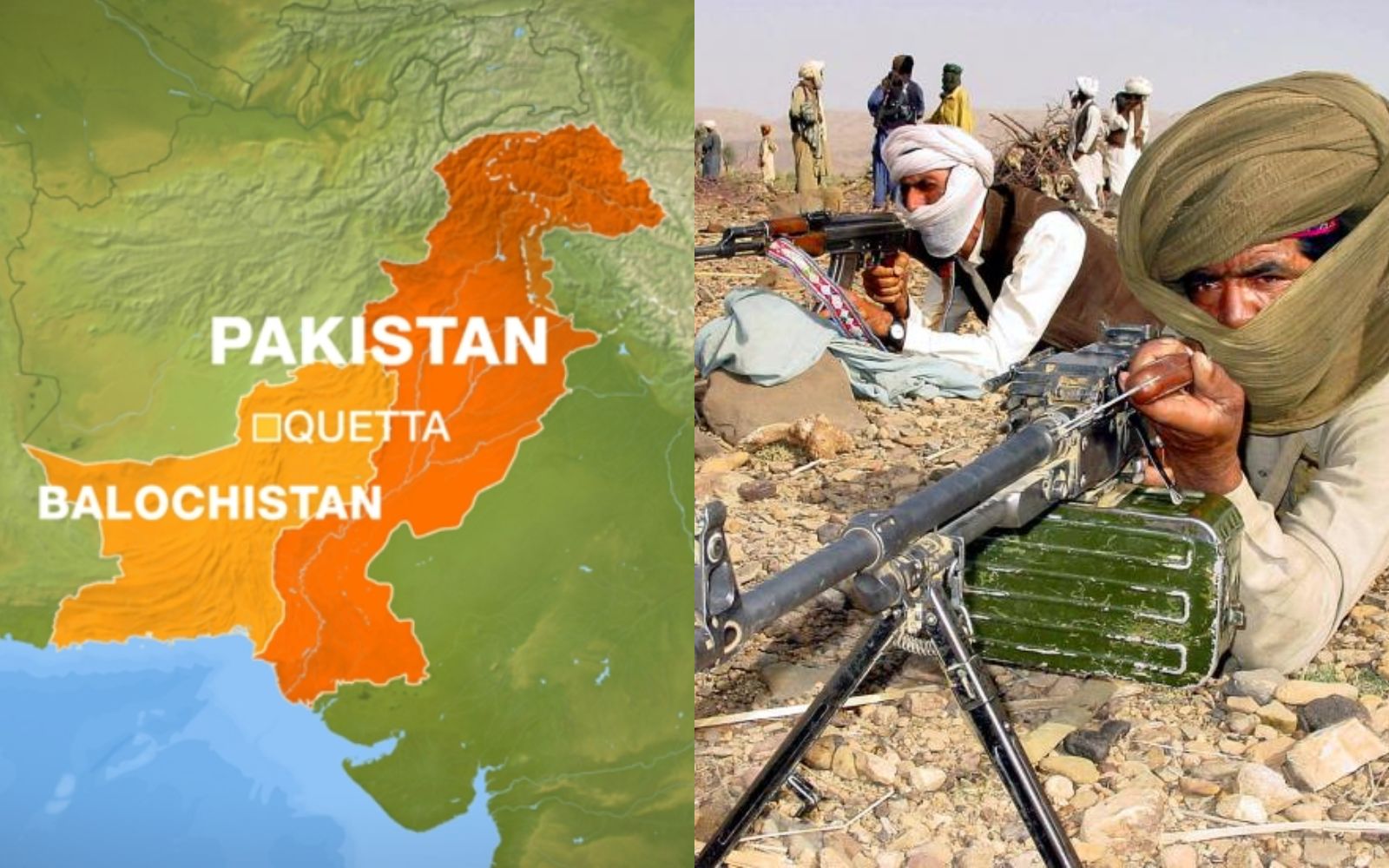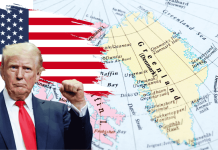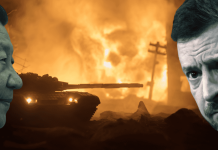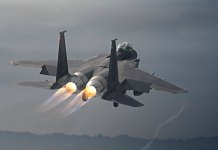Pakistan army, in conjunction with its intelligence agency, the ISI, has sponsored several “non-state” terrorist organizations with the tacit objectives of keeping the flames of insurgency burning in the Indian part of Jammu & Kashmir and decimating the non-conformist groups like the Shia, Ahmadi, and Hindu religious minorities.
Major terrorist organizations like HuM, LeT, JeM, Lashkar-e Jhangvi, or Labbaik have been active for decades, with two of them (Let and JeM) focused on stoking the flames of anti-India propaganda through the power of the gun.
The Voice of America published a report about terrorist attacks in Pakistan during the past year. This report, as we shall see, entirely deals with a militant group outside the above-mentioned terror outfits of Pakistan.
To generate a debate on terrorism in Pakistan, we shall first try to succinctly present the views expressed by the Voice of America in the report under consideration.
The report says that “militant” attacks across Pakistan killed around 500 civilians and a similar number of security forces in 2023, the highest number of fatalities the country has experienced in six years. The report says that northern Khyber Pakhtunkhwa and south-western Balochistan provinces bordering Afghanistan accounted for most of the terror attacks and the resulting casualties.
The Pakistan military has reported the deaths of at least 265 officers and soldiers in nationwide militant attacks and counterinsurgency operations in 2023. In December, militants raided an army base in a north-western district and killed at least 23 soldiers in the deadliest attack in the country’s recent history.
Who Are The “Militants”?
Khyber Pakhtunkhwa police says in its annual report that militant attacks claimed the lives of 185 police personnel last year. Police in Balochistan also suffered fatalities but did not disclose the number.
Pakistan says TTP and other fugitive militants have increasingly and freely carried across border terrorist attacks from sanctuaries in Afghanistan. Officials in Islamabad allege that Afghan fighters linked to the ruling Taliban in Kabul have also facilitated and participated in TTP-led assaults on Pakistani security forces and civilians.
While Islamabad is bringing the blame for supporting TTP to the doorsteps of Afghanistan, it also raises its finger toward the Indian intelligence agency RAW for clandestinely providing arms to the Baluch “insurgents.” These accusations have been made for a long time.
While Islamabad and its army are vociferous about the terrorist activities of TTP and BLA, it is completely tight-lipped about the terrorist activities of the outfits it has raised for creating insurgency and mayhem in Kashmir.
It does not speak of military operations in these two restive provinces and the atrocities committed by the forces in North Waziristan, where nearly 70,000 people were killed in cold blood by the Pak army, according to its confession.
The Pak army does not speak a word about the atrocities perpetrated against the Baluch nationalist forces, attacks, kidnappings, disappearances, and the rest of it.
Terrorist Regime
Very few people know that the creation of terrorist culture in Pakistan is the creation of its terrorist regimes, mostly controlled by the army and its intelligence wing called ISI.
We have already said that there are several terrorist organizations created, funded, and supported by the Pakistan army with a set agenda that has political motives behind it.
Pakistan has been looking for space eastward and westward. While it could not succeed in making any headway on its eastern border, it did indulge in blatant interference in the internal affairs of Afghanistan to its west.
Pakistan created the Taliban in 1996 with the motive of planting a regime in Kabul that would tow its line. The Taliban did capture power first in 1996 and then in 2019, but to the frustration of Pakistan, the Taliban regime declined to tow the Pakistani line because the Afghan Taliban considered Pakistan a stooge of the US.
The TTP is the by-product of the Taliban of Afghanistan.
Durand Line Issue
The Pashtuns on either side of the Durand Line have always rejected the Durand Line drawn by the British colonial power. No government in Kabul, whether monarchy or popular, has accepted the Durand Line.
But Pakistan, having inherited the colonial legacy of divide and rule, dictated that the people of Khyber Pakhtunkhwa accept the line, it forced the nationalist elements of the erstwhile NWFP to begin armed resistance to the highhandedness of Pakistan.
The TTP activists are kith and kin of the Afghan Taliban, having the same language, culture, traditions, religion, and lifestyle. How does Pakistan expect the Afghan Taliban to distance itself from TTP, particularly when it fought shoulder to shoulder with the Taliban of Afghanistan in their war against NATO and the USA?
It is a travesty that the Pakistani ISI, which helped the Taliban to come to power in Kabul, now accuses them of extending support and sympathy to the TTP. It clearly shows that the TTP are rabid nationalists and freedom fighters that Pakistan wants to malign as terrorists.

Baluch Identity
In the same strain, Baloch nationalist elements have risen in revolt against the discrimination and deprivation inflicted by the Punjabi army on them. The Baluch nationalists have risen against the Punjabi rulers and army, looting their natural resources, especially gas.
Atrocities against the Baluch nationalists have been adequately recorded and brought to the notice of the international community. To the rulers of Pakistan, they are “insurgents” and “terrorists”.
The Pakistan army has led military operations against the Baluch community, and the Pakistan Air Force has bombarded their habitats at different times. The Baloch Liberation Army is fighting its battle for liberation from the clutches of Punjabi rulers.
They are not terrorists but freedom fighters.
Final Analysis
Pakistan is only shedding crocodile tears when it cries that it is facing the terrorist onslaught. The reality is that the Pakistan army and the Pakistan government are the fountainhead of terrorism.
There is deep resentment in three provinces, plus Pakistan-controlled Jammu & Kashmir and Gilgit Baltistan, against the parochial and authoritarian regimes in Islamabad.
Pakistan is using muscle power to suppress these uprisings, which is a futile exercise. Pakistan has to accept its highhandedness and concede the rights accruing to people in the normal course of things.
- KN Pandita (Padma Shri) is the former director of the Center of Central Asian Studies at Kashmir University. Views Personal.
- Follow EurAsian Times on Google News




